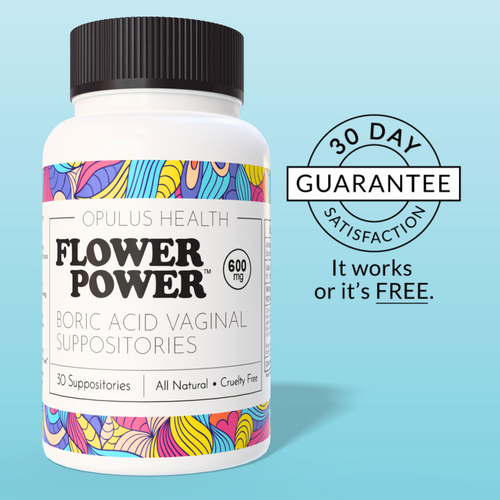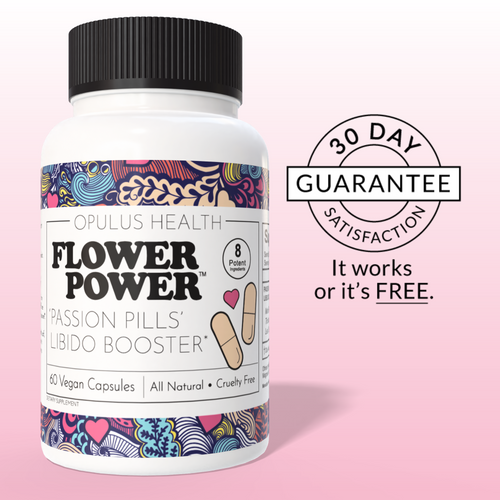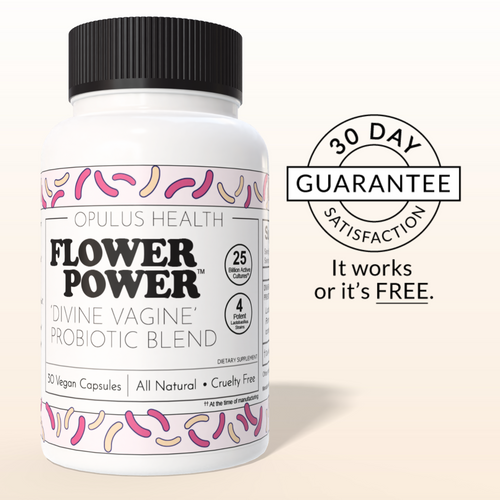Vaginal health is an essential aspect of overall well-being, yet it remains a topic many women feel hesitant to discuss openly. One of the most critical—but often overlooked—components of vaginal health is the vaginal mucosa, the delicate lining that maintains moisture, provides protection, and supports sexual comfort. Hydration of this tissue is not just a matter of comfort; it plays a vital role in preventing irritation, infections, and age-related changes.
In this article, we’ll explore the science behind vaginal mucosa, explain why proper hydration is essential, and provide actionable strategies for supporting vaginal health naturally. Whether you’re experiencing dryness, discomfort, or simply want to maintain optimal vaginal wellness, this guide will provide the information and tools you need.
What Is Vaginal Mucosa?
The vaginal mucosa is the innermost lining of the vagina, composed of epithelial cells and connective tissue. This tissue serves several essential functions:
-
Acts as a barrier against harmful bacteria and pathogens.
-
Produces natural lubrication, which facilitates sexual activity and prevents irritation.
-
Supports pH balance, creating an environment that discourages infection.
In short, the vaginal mucosa is a multifunctional tissue critical for maintaining comfort, protection, and overall reproductive health.
Structure of Vaginal Mucosa
The vaginal mucosa is a complex tissue composed of multiple layers, each playing a crucial role in vaginal health and function. Understanding its structure can help explain why hydration is so important.
-
Epithelial layer – This is the outermost layer of cells that directly interact with vaginal secretions. It acts as the first line of defense against pathogens and irritants, while also producing natural lubrication. A well-hydrated epithelial layer remains soft and flexible, reducing the risk of microtears or discomfort during sexual activity.
-
Connective tissue – Located beneath the epithelial layer, connective tissue provides elasticity and structural support. It contains collagen and elastin fibers that allow the vagina to stretch and return to its normal shape. Hydration helps maintain the integrity and resilience of this tissue, preventing sagging and irritation.
-
Vascular network – The mucosa is richly supplied with blood vessels that deliver essential nutrients and oxygen while supporting immune function. Adequate hydration ensures that these vessels function efficiently, aiding in tissue repair, natural lubrication, and overall vaginal comfort.
Maintaining a well-hydrated vaginal mucosa ensures that all these layers work together effectively. Proper hydration not only supports elasticity and protection but also enhances natural lubrication, prevents irritation, and contributes to overall sexual and reproductive health.
The Importance of Vaginal Hydration
Why Hydration Matters for Vaginal Health
Hydration plays a central role in vaginal health. When the mucosa is well-hydrated, it remains supple, elastic, and protective. On the contrary, dehydration or reduced moisture can lead to dryness, causing irritation and sensitivity. On the other hand, there is an increased infection risk, as dry tissue is more vulnerable to bacterial and yeast infections. Lastly, this condition can lead to painful intercourse, reducing sexual satisfaction and comfort.
Effects of Dehydration on Vaginal Mucosa
Dehydration of the vaginal mucosa can occur due to a variety of factors, each affecting moisture levels and tissue health in different ways:
Hormonal changes
Fluctuations in hormones, particularly estrogen, can significantly reduce vaginal lubrication. This is common during menopause, pregnancy, or with the use of certain birth control methods. Lower estrogen levels can thin the mucosal lining, making it more susceptible to dryness, irritation, and even microtears.
Medications
Certain medications may inadvertently contribute to vaginal dryness. Antihistamines and diuretics can reduce fluid retention in the body, while treatments such as chemotherapy drugs may affect mucosal tissue directly. Women taking these medications may notice reduced natural lubrication or increased sensitivity.
Lifestyle factors
Everyday habits can also influence vaginal hydration. Low water intake deprives tissues of essential moisture, while excessive caffeine or alcohol consumption can further dehydrate the body. Smoking may also impair circulation, reducing nutrient delivery to the mucosa.
Natural Ways to Support Vaginal Mucosa Hydration
Diet and Nutrition
Nutrition plays a crucial role in maintaining vaginal health and supporting the hydration and elasticity of the vaginal mucosa. Consuming a balanced diet rich in certain nutrients can help preserve tissue integrity and promote natural lubrication.
For example, omega-3 fatty acids, found in foods such as salmon, flaxseeds, and walnuts, contribute to the maintenance of healthy mucosal tissue and overall vaginal elasticity. Additionally, antioxidants like vitamins C and E support collagen formation, which strengthens the mucosa and helps it retain moisture.
Incorporating water-rich fruits and vegetables—such as cucumbers, watermelon, and oranges—not only provides hydration to the body but also contributes directly to the health and moisture of vaginal tissues. By prioritizing these nutrient-dense foods, women can naturally enhance vaginal hydration, reduce discomfort, and support long-term vaginal wellness.
Hydration and Lifestyle Habits
Simple lifestyle choices can dramatically improve vaginal moisture:
-
Drink adequate water daily – at least 8 glasses to maintain systemic hydration.
-
Avoid irritants – limit alcohol, caffeine, and harsh soaps that disrupt vaginal pH.
-
Exercise regularly – promotes circulation, supporting nutrient delivery to tissues.
Vaginal Moisturizers and Supplements
Topical moisturizers and oral supplements can provide targeted support for vaginal mucosa hydration:
-
Vaginal moisturizers – such as water-based gels, restore moisture without hormones.
-
Oral supplements – like She Juicy™, provide natural, vegan-friendly ingredients that support mucosa hydration.
Frequently Asked Questions
What is the vaginal mucosa and why is it important?
The vaginal mucosa is the delicate lining of the vagina that serves multiple critical functions. It protects against harmful bacteria and infections, maintains a healthy pH balance, and produces natural lubrication that is essential for comfort, sexual activity, and overall vaginal health. A well-hydrated vaginal mucosa ensures these functions are maintained, helping to prevent irritation, dryness, and discomfort.
How can I naturally hydrate my vaginal tissue?
Hydrating the vaginal mucosa naturally involves a combination of lifestyle habits, nutrition, and targeted products. Drinking plenty of water daily is fundamental, as systemic hydration affects tissue moisture. Eating nutrient-rich foods such as omega-3 fatty acids, antioxidant-rich fruits, and water-dense vegetables can support mucosal health. Additionally, using water-based vaginal moisturizers and natural oral supplements like She Juicy™ can enhance lubrication and comfort without hormones.
Can supplements improve vaginal moisture?
Yes. Certain natural supplements are formulated to support vaginal tissue hydration and elasticity. Ingredients like Slippery Elm Bark, amino acids, and minerals work synergistically to nourish the vaginal mucosa, boost natural moisture, and improve comfort during daily activities and sexual activity. Unlike hormone-based treatments, these supplements offer a gentle, safe option for women at any stage of life.
Does menopause affect vaginal hydration?
Absolutely. During menopause, declining estrogen levels often lead to thinner vaginal walls and reduced natural lubrication. This can result in dryness, itching, and discomfort during intercourse. Hydration strategies—including water intake, diet, moisturizers, and supplements—become particularly important during this stage to maintain vaginal health, comfort, and pH balance.
Is vaginal dryness normal, and when should I see a doctor?
Occasional vaginal dryness can be a normal response to factors like stress, dehydration, or temporary hormonal changes. However, if dryness is persistent, causes pain, itching, burning, or recurrent infections, it is important to consult a gynecologist. A healthcare professional can assess underlying causes and recommend effective solutions, which may include topical moisturizers, oral supplements, or other medical interventions.
Protect and Hydrate: Your Guide to Healthy Vaginal Mucosa
Maintaining hydration of the vaginal mucosa is vital for comfort, sexual health, and overall well-being. By incorporating water-rich foods, proper lifestyle habits, and targeted supplements or moisturizers, women can support their vaginal health naturally and effectively.
Take action today: explore natural vaginal hydration strategies, try doctor-backed supplements like She Juicy, and prioritize your vaginal wellness. Share this article with friends, comment with your questions, and join the conversation about empowering women through informed vaginal health practices.

















